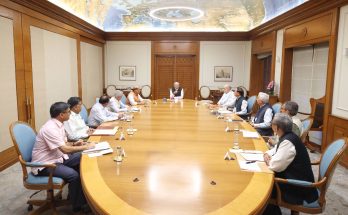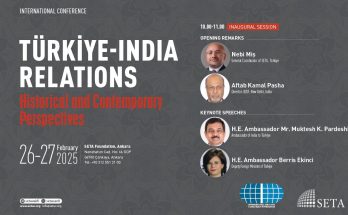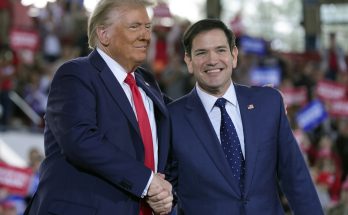
Rejecting the clichéd India-Pakistan hyphenation in Washington’s geopolitical calculus, Defence Secretary Ashton Carter has underlined that the US has a much bigger global agenda with India than with Pakistan, and declared his country’s support for the fruition of the ‘Make in India’ campaign.
Ahead of his three-day visit to India starting April 10, Mr Carter struck an upbeat not on advancing manufacturing and technological cooperation with Prime Minister Narendra Modi’s ‘Make in India’ campaign to upgrade the country’s industrial and defence base and hinted at the prospects of “a landmark co-production agreement. Mr Carter stressed that he will be discussing “exciting new projects” with India’s Defence Minister Manohar Parrikar during his visit. Mr Carter’s visit comes days after Mr Modi visited the US to attend the Nuclear Security Summit.
No hyphenation, please
Raising the bar for the India-US relations, Mr Carter underlined that the “United States-India relationship is destined to be one of the most significant partnerships of the 21st century.” Repudiating the India-Pakistan hyphenation, Mr Carter stressed that the US has a “whole global agenda” with India covering all issues while the relationship with Pakistan has to do with issues of terrorism and Afghanistan.
Speaking at the Council for Foreign Relations (CFR), a top American think-tank, Mr Carter said, “We are long past the point in US policy-making where we look at the India-Pakistan dyad as the whole story for either one of them. We have much more to do with India today than has to do with Pakistan.” “There is important business with respect to Pakistan, but we have much more, a whole global agenda with India, agenda that covers all kinds of issues.”
“The days are gone when we only deal with India as the other side of the Pakistan coin, or Pakistan as the other side of the India coin. I know that there are those in India and Pakistan who are still glued to that way of thinking. But the US put that behind us some time ago,” Mr Carter said in response to a question on impact of India-US relationship on Pakistan.
Mr Carter, however, was tight-lipped over the details of projects he was planning to discuss with India’s defence minister. “Stay tuned when I’m with Minister Parrikar.” He added that they would discuss the progress made in aircraft-carrier, jet-fighter, and jet-engine collaboration.
During Mr Carter’s visit, India and the US are expected to finalise a slew of foundational agreements, including the Logistics Support Agreement that would allow the militaries of India and US to use each other’s land, air and naval bases for resupplies, repair and rest. India will be looking for quid pro quo deal for signing the logistics pact which could entail the US defence firms agreeing to set up manufacturing facilities in India, Harinder Sekhon of Vivekananda International Foundation, a New Delhi-based think tank, told India Writes Network.
India will be pushing hard for Lockheed Martin to set up production facilities in India for manufacturing F-16s. India will also be pitching for transfer of cutting-edge defence technologies.
India and the US are also looking to expedite Communication Interoperability and Security Memorandum Agreement (CISMOA) and Basic Exchange and Cooperation Agreement for Geo-Spatial Cooperation (BECA), which have been stuck due to India’s concerns over intrusive inspections and sovereignty issues. The CISMOA agreement would help secure communications when the militaries operate together, and exchange of topographical, nautical, and aeronautical data.
(Balendu Shekhar contributed inputs for this article)
Author Profile

- Manish Chand is Founder-CEO and Editor-in-Chief of India Writes Network (www.indiawrites.org) and India and World, a pioneering magazine focused on international affairs. He is CEO/Director of TGII Media Private Limited, an India-based media, publishing, research and consultancy company.
Latest entries
 India and the WorldJune 16, 2025Amid Pakistan-Turkey nexus, Cyprus joins India against cross-border terror
India and the WorldJune 16, 2025Amid Pakistan-Turkey nexus, Cyprus joins India against cross-border terror India and the WorldMay 8, 2025Pahalgam payback: India exposes Pakistan’s lies, misuse of religious sites for training terrorists
India and the WorldMay 8, 2025Pahalgam payback: India exposes Pakistan’s lies, misuse of religious sites for training terrorists India and the WorldMay 3, 2025IMEEC provides a democratic alternative to BRI: Italy’s former foreign minister (Interview)
India and the WorldMay 3, 2025IMEEC provides a democratic alternative to BRI: Italy’s former foreign minister (Interview) India and the WorldApril 21, 20253T Template for India-US Mega Partnership
India and the WorldApril 21, 20253T Template for India-US Mega Partnership







